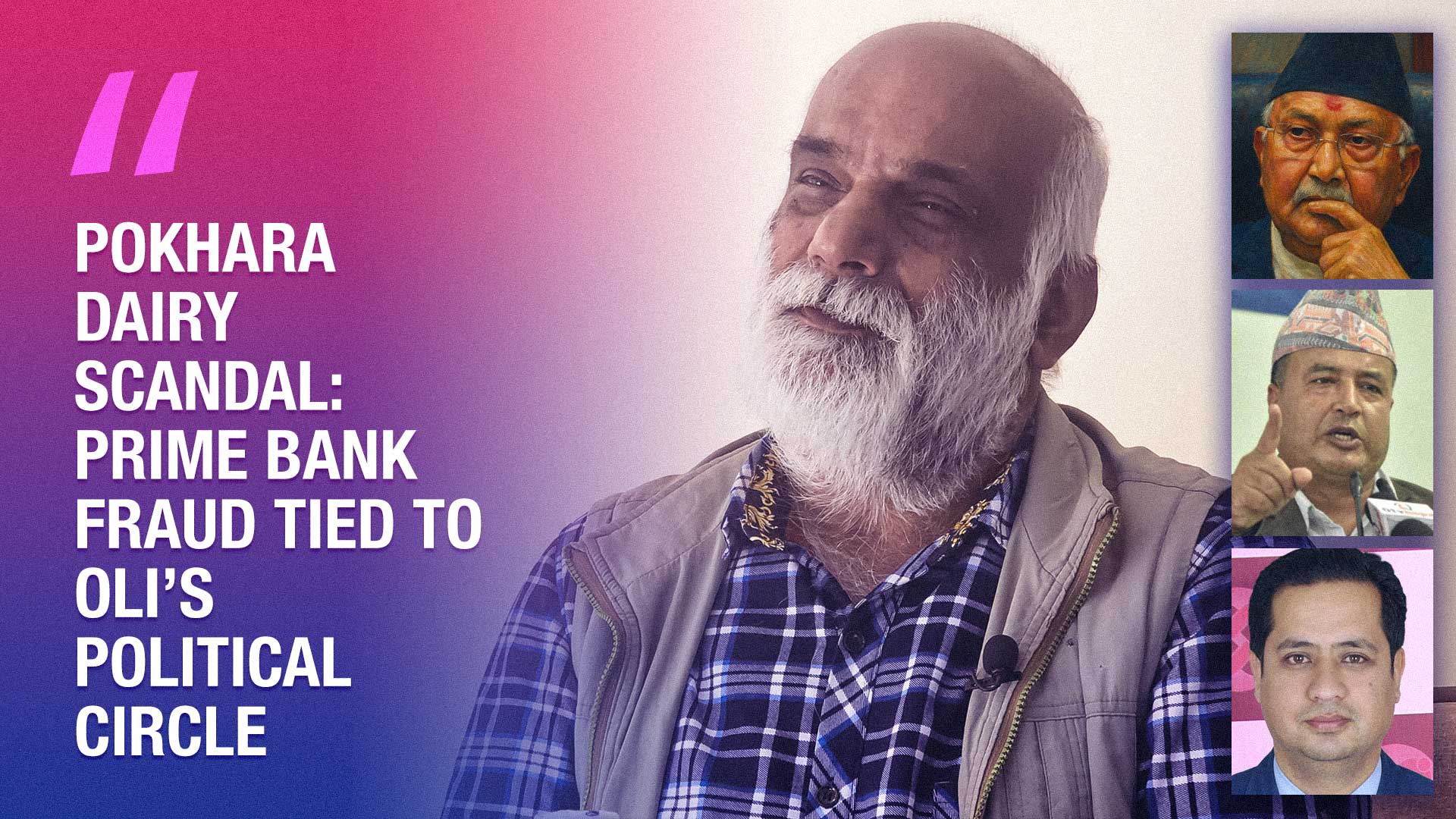Inside Nepal’s Power Corruption: How Oli, Basnet and Batas Hijacked a Bank
Seven years, seven crores, and zero justice.

This investigative story reveals how Resham Raj Panthi, a Pokhara-based entrepreneur and owner of Panthi Dairy, became the central victim in what he calls a state-backed financial conspiracy. Panthi alleges that his business collapse stems from collusion between top executives of Prime Commercial Bank, regulatory officials at Nepal Rastra Bank, and powerful political figures within former Prime Minister KP Oli’s circle—particularly ex-Industry Minister Mahesh Basnet and businessman Anand Batas.
According to Resham Panthi, a loan of Rs 7 crore was approved for his dairy and steel ventures by the then Kailash Development Bank (later merged into Prime Commercial Bank). But he claims the money was never released to him. Instead, branch manager Narendra Thapa, CEO Amrit Charan Shrestha, and bank chairman Narayan Paudelallegedly siphoned the funds through internal manipulation—leaving Panthi to pay interest on amounts he never received.
Panthi says his efforts to seek justice through Nepal Rastra Bank failed. He accuses the institution, led by Governor Mahaprasad Adhikari and Deputy Governors Chintamani Shivakoti and Nilam Dhungana, of protecting the bank rather than the victim. “Nepal Rastra Bank has become an academy for looters, not a regulator,” Panthi told Nepal Aaja. He says every attempt to investigate was stalled inside bureaucratic circles or “settled through money and political pressure.”
After the merger, Prime Commercial Bank’s current CEO Sanjiv Manandhar allegedly continued the coercion, refusing to release business funds and instead threatening auction of Panthi’s property. Panthi now calls the case part of a larger Nepal Bank Fraud network—linking politics, power, and corporate impunity.
In his testimony, Panthi describes a “political triangle” connecting Mahesh Basnet, Anand Batas, and KP Oli. He claims Basnet, during his tenure as Industry Minister, pressured him to surrender his leased industrial land to Batas Group, warning, “Give it to Batas or I will cancel your lease.” Panthi also alleges that Batas’s proximity to Oli ensured that his complaints never reached the Prime Minister. “I tried 300 times to meet KP Oli,” Panthi said, “but he would not see me—yet he met Anand Batas whenever he wished.”
The Pokhara Dairy Scandal has now become symbolic of deeper rot within Nepal’s banking and political systems. With institutions like the Nepal Rastra Bank accused of regulatory silence and politicians accused of sheltering financial crime, the boundary between governance and corruption appears blurred.
While Prime Commercial Bank and the individuals named—Sanjiv Manandhar, Amrit Charan Shrestha, Narayan Paudel, Mahaprasad Adhikari, Chintamani Shivakoti, Nilam Dhungana, Mahesh Basnet, Anand Batas, and KP Oli—have not publicly responded to the allegations, the case continues to stir public outrage amid Nepal’s post-Gen Z Movement political climate.
This story is more than a banking dispute; it is a lens into Nepal Politics Corruption, Banking Crime in Nepal, and the institutional impunity that defines the country’s elite. As Panthi warns, “The day I fall, the bank will fall with me.”





![From Kathmandu to the World: How Excel Students Are Winning Big [Admission Open]](https://nepalaaja.com/img/70194/medium/excel-college-info-eng-nep-2342.jpg)


